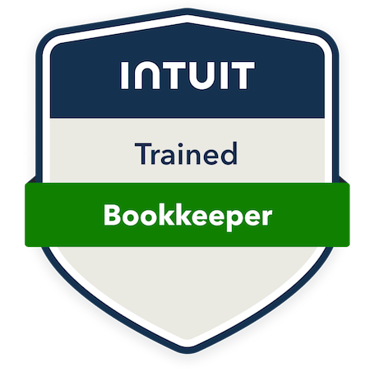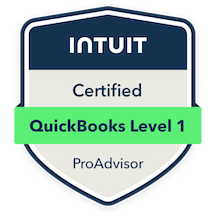The Business Owner's Guide to Transitioning to Professional Bookkeeping
When is the right time for your business to consider hiring a professional bookkeeper? Here are some things to consider if when making that important decision.


You've been handling your business and your books since the beginning and you are finding less and less time, patience, and knowledge to manage all your transactions. Is it time to look for assistance?
Of course you have hesitations and rest-assured, having a trusted partner in a professional bookkeeper can be one of the best and most profitable decisions you make.
Many business owners hesitate to transition to professional bookkeeping due to common concerns:
Worry about losing financial control or visibility
Uncertainty about costs versus benefits
Concern about sharing sensitive financial information
Pride in having managed finances independently
Fear that no one will care about your business as much as you do
These concerns are natural, but they shouldn't prevent you from experiencing the significant benefits professional bookkeeping offers.
Step 1: Assess Your Current Situation
Take an honest inventory:
How many hours do you spend weekly on bookkeeping tasks?
How confident are you in your financial statements' accuracy?
Have you missed tax deductions or filing deadlines in the past?
Do you have time to keep up with changing tax regulations?
Is bookkeeping taking time away from core business activities?
Calculate the true cost:
Multiply your hours spent on bookkeeping by your hourly value
Add costs of any errors, missed deductions, or penalties
Consider opportunities lost while focused on bookkeeping
Step 2: Define What Success Looks Like
Before transitioning, clarify your goals:
Specific time savings you hope to achieve
Financial insights you currently lack
Reports or metrics you want to track
Level of involvement you wish to maintain
Communication frequency expectations
Step 3: Find the Right Partner
Look for a bookkeeper who:
Offers transparent pricing that fits your budget
Communicates in a style that matches your preferences
Uses technology you're comfortable with
Takes time to understand your unique business needs
Step 4: Prepare for the Transition
Organize your current financial information:
Gather bank and credit card statements
Collect outstanding invoices and bills
List all active financial accounts
Document regular expenses and income sources
Note any unique financial arrangements
Consider timing:
Year-end or quarter-end transitions are ideal but not essential
Allow extra time if transitioning during tax season
Schedule the change during a relatively stable business period
Step 5: Maintain the Right Level of Involvement
You can delegate bookkeeping while staying appropriately involved:
Schedule regular review meetings (monthly or quarterly)
Request specific reports that help you make decisions
Keep access to your accounting software for visibility
Establish clear approval processes for certain transactions
Set up alerts for unusual financial activities
Step 6: Measure the Impact
After 3-6 months with professional bookkeeping, evaluate:
Time saved and how you've redirected it
Improvements in financial clarity
Stress reduction around finances
New insights gained about your business
Return on investment from professional fees
Next Steps to Consider
Request a consultation with a professional bookkeeper
Ask for a specific assessment of your current bookkeeping
Start with a small project to test the relationship
Consider a gradual transition with increasing responsibilities
Remember: Professional bookkeeping isn't about giving up control—it's about gaining a knowledgeable partner who helps you understand and improve your financial position while freeing you to focus on what you do best.
Marble Anderson, LLC FINANCIAL PEACE OF MIND
Request your Free Consultation
© 2026. All rights reserved.




MA Locations: Serving clients in Middlesex, Norfolk, and Barnstable Counties from our Concord, Dedham, and Brewster offices.


